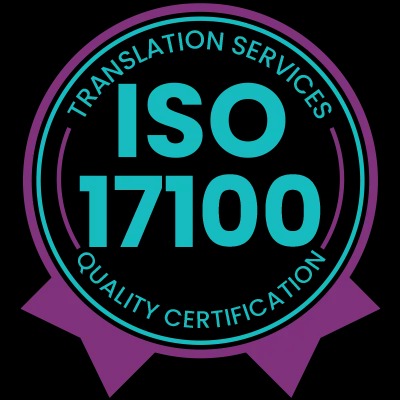ISO 17100 – International Quality Standard for Translation Services

ISO 17100 is the globally recognized standard that sets out the requirements for delivering professional, high-quality translation services. It goes far beyond simple linguistic accuracy — it provides a framework for managing the entire translation process to ensure consistency, clarity, and reliability in every project.
This standard covers every stage of the workflow:
-
Project initiation – confirming the client’s requirements, intended audience, and purpose of the text.
-
Translation – carried out by a qualified translator with the necessary subject-matter expertise.
-
Revision by a second linguist – a mandatory step under ISO 17100, where a separate, equally qualified language professional reviews the translation for accuracy, completeness, and style.
-
Final verification and delivery – ensuring the finished product meets the agreed specifications and is ready for its intended use.
ISO 17100 also defines strict criteria for the competencies of translators, revisers, and project managers, as well as requirements for secure handling of client information, proper documentation of processes, and continuous professional development.
As a translator working in line with ISO 17100 principles, I follow these best practices to guarantee that every project receives the attention, expertise, and quality control it deserves. This means you can expect:
-
Professional, transparent processes from start to finish.
-
Accurate, context-appropriate translations tailored to your audience.
-
Clear, consistent communication throughout the project.
-
Strict confidentiality and secure handling of your documents.
By choosing a professional who works to ISO 17100 standards, you’re ensuring that your translations meet internationally recognized benchmarks for quality and reliability — so your message is not only understood, but understood exactly as you intended.
